JEDDAH/LONDON: The race to save a five-year-old boy who fell 32 meters down a well in Morocco ended in tragedy on Saturday when he was found dead.
The Moroccan royal palace confirmed that Rayan, who was trapped in the deep well for four days, has died.
Moroccan King Mohammed VI made a phone call to Khaled Awram and Wassima Khersheesh, Rayan’s parents, to offer his condolences to the family over the boy’s tragic passing, the palace said in a separate statement.
Millions worldwide watching a live video feed from the scene held their breath as rescuers and a medical team emerged from a tunnel carrying Rayan Awram, who had been trapped since Tuesday.
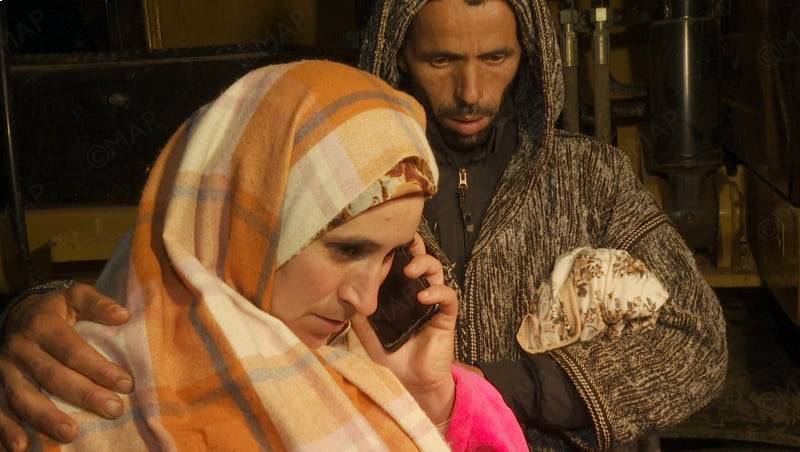
King Mohammed VI made a phone call to Khaled Awram and Wassima Khersheesh, Rayan’s parents, to offer his condolences. (MAP)
The rescue operation was constantly delayed by rocks and imperilled by the threat of landslides.
The boy was wrapped in a yellow blanket after he emerged from a tunnel dug specifically for the rescue, and was immediately taken by ambulance to a helicopter where he was transported to the nearest hospital, shortly before the palace issued the statement confirming his death.
Earlier, the king affirmed that he was closely following the developments and had issued instructions to all concerned authorities to take the necessary measures and to exhaust all efforts to save his life.
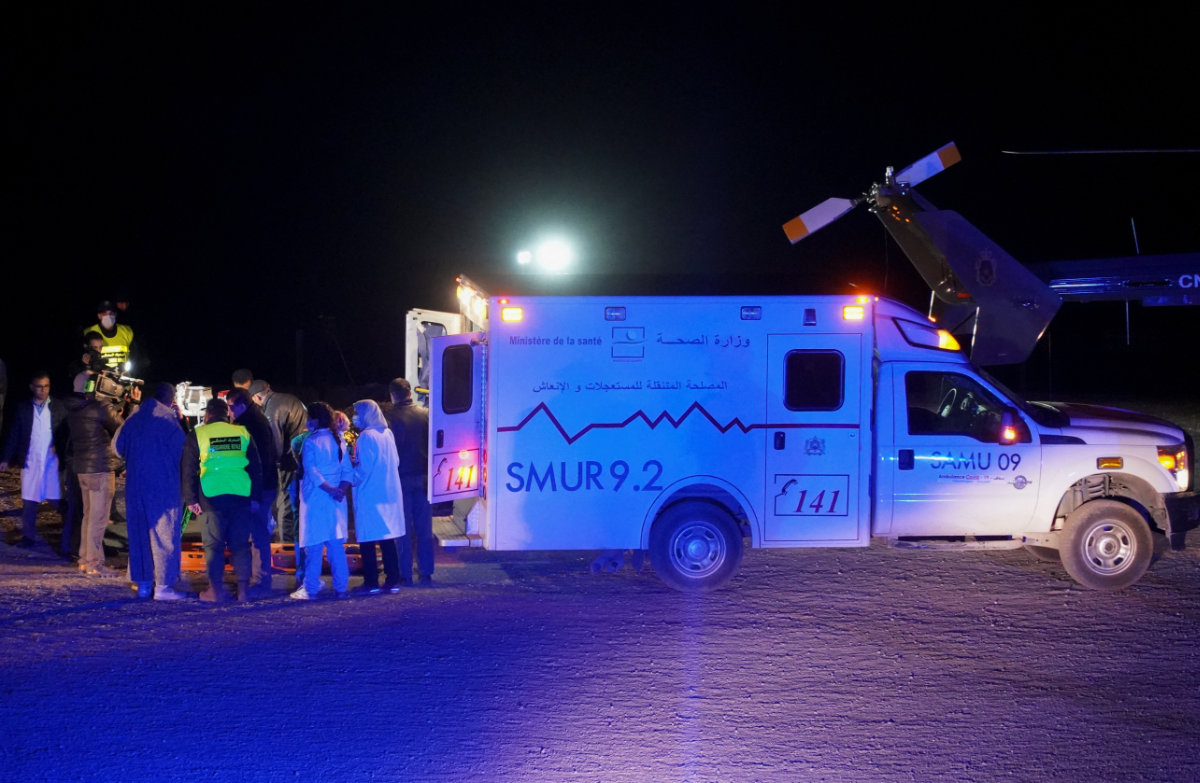
Medics and rescuers inspect the body of Rayan Awram after he was extracted from the well on Feb. 5, 2022. (REUTERS/Abdelhak Balhaki)
King Mohammed also expressed his appreciation for the tireless efforts made by the rescue teams, as well as the collective activities and strong support from various Moroccan groups and families during this painful occasion.The boy was pulled out Saturday night by rescuers after a lengthy, delicate and dangerous operation that captivated global attention.
Workers with mechanical diggers had been trying round the clock to rescue the 5-year-old child, Rayan Awram, after he fell into a 32-meter (100-foot) deep well in the hills near Chefchaouen on Tuesday.
“We hope we will not encounter rocks,” lead rescuer Abdelhadi Tamrani told reporters at the site on Saturday afternoon, while there were still several meters left to dig.
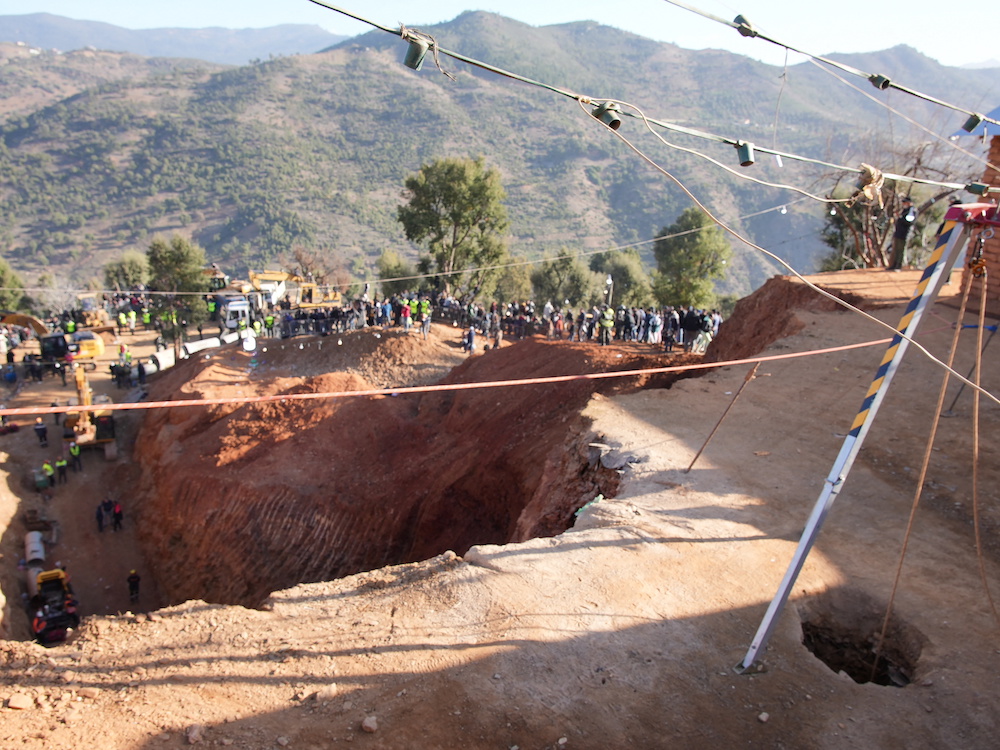
Rescuers stand near the hole of a well into which a five-year-old boy fell in the northern hill town of Chefchaouen, Morocco on Feb. 5, 2022. (Reuters)
His parents had been escorted to an ambulance before the boy emerged. His plight had captured worldwide attention.
Online messages of support and concern for the boy poured in from around the world as the rescue efforts dragged through the night.
Rescuers used a rope to send oxygen and water down to the boy as well as a camera to monitor him. By Saturday morning, the head of the rescue committee, Abdelhadi Temrani, said: “It is not possible to determine the child’s condition at all at this time. But we hope to God that the child is alive.”
Tamrani said it was difficult to determine the child’s health condition because a camera that has been dropped down the well showed him lying on his side, but he added “we hope we will rescue him alive.”
The Red Crescent also confirmed that it had been providing oxygen continuously to the little boy since Tuesday evening.
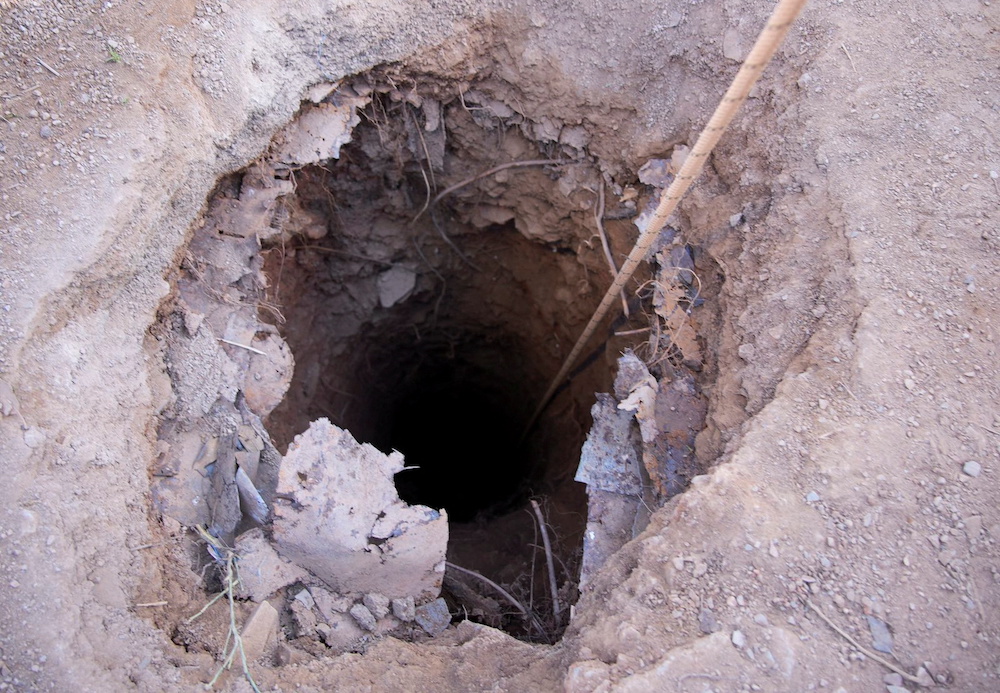
A view shows a well into which a five-year-old boy fell in the northern hill town of Chefchaouen, Morocco on Feb. 5, 2022. (Reuters)
Rescue crews, using bulldozers and front-end loaders, excavated the surrounding red earth down to the level where the boy was trapped and dug horizontally toward him, by hand.
They faced a risk of landslides, and on Saturday had to maneuver around a large rock which blocked their way.
Earlier in the darkness, crews had moved a heavy pipe into position in the area. One rescuer lugged what appeared to be a jackhammer.
A glacial cold had gripped this mountainous and impoverished region of the Rif, which is at an elevation of about 700 meters (2,300 feet).
Thousands of people had gathered and even camped in solidarity around the site in recent days and onlookers applauded to encourage the rescuers, sang religious songs or prayed, chanting in unison “Allahu akbar” (God is greatest).
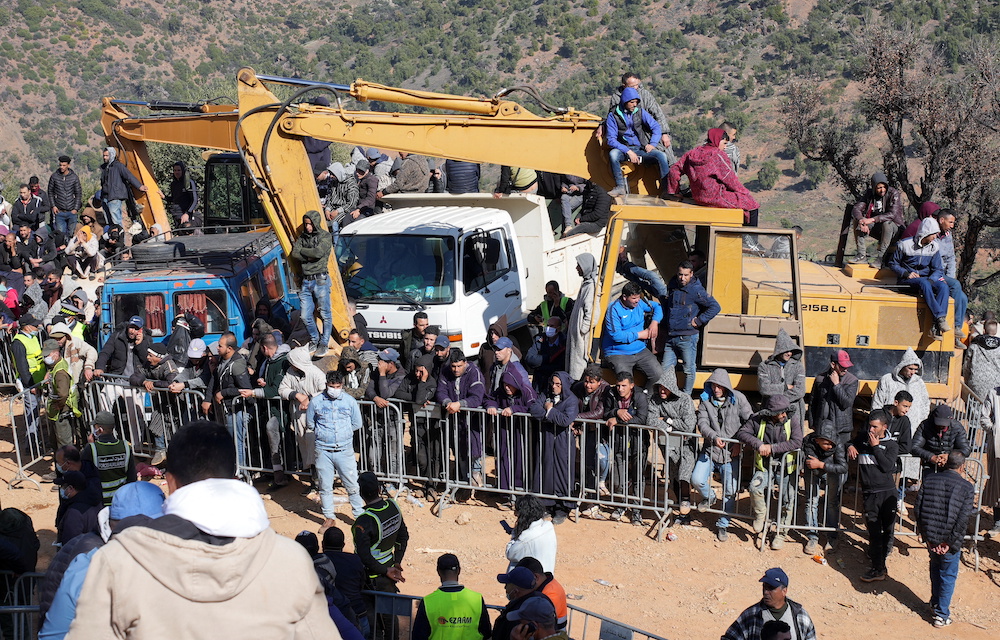
People gather as rescuers work to reach a five-year-old boy trapped in a well in the northern hill town of Chefchaouen, Morocco Feb. 5, 2022. (Reuters)
The shaft, just 45 centimeters (18 inches) across, was too narrow to reach Rayan, and widening it was deemed too risky — so earth-movers dug a wide slope into the hill to reach him from the side.
The operation has made the landscape resemble a construction site. It involves engineers and topographers, and was made more complex by the mix of rocky and sandy soils.
“I keep up hope that my child will get out of the well alive,” Rayan’s father told public television 2M on Friday evening. “I thank everyone involved and those supporting us in Morocco and elsewhere.”
He said earlier in the week that he had been repairing the well when the boy fell in.
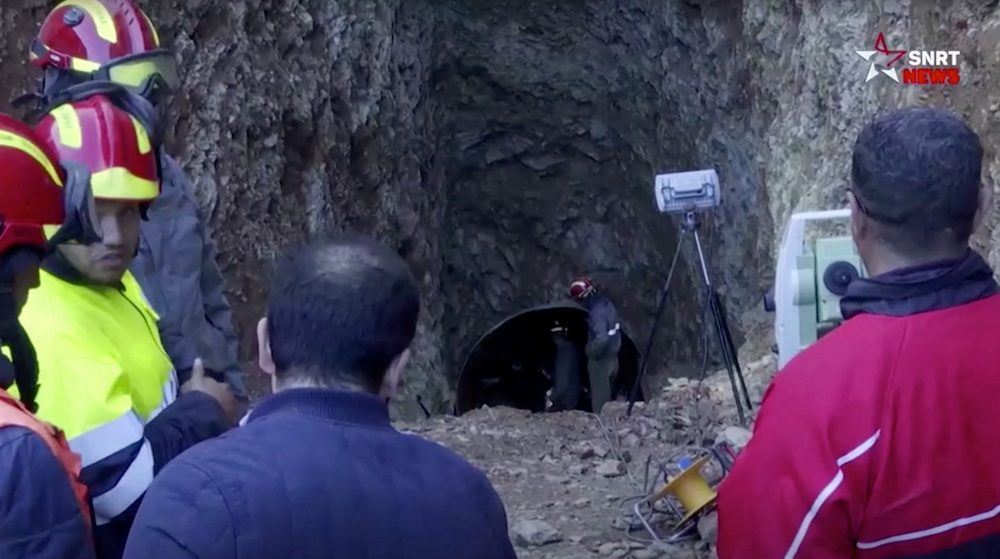
A view shows the site where rescuers are working to reach a five-year-old boy trapped in a well in the northern hill town of Chefchaouen, Morocco on Feb. 5, 2022. (SNRT News/Reuters)
The drama has sparked an outpouring of sympathy online, with the trending Arabic hashtag #SaveRayan.
“Millions of people across the world are holding their breath in the race against time to save Rayan,” one Twitter user wrote.
Another paid tribute to rescue workers working around the clock for days, saying, “they are real-life heroes.”
A male relative of the boy told Reuters TV that the family had first realized he was missing when they heard muffled crying and lowered a phone with its light and camera on to locate him.
“He was crying ‘lift me up’,” the relative said.
(With Reuters and AFP)




































